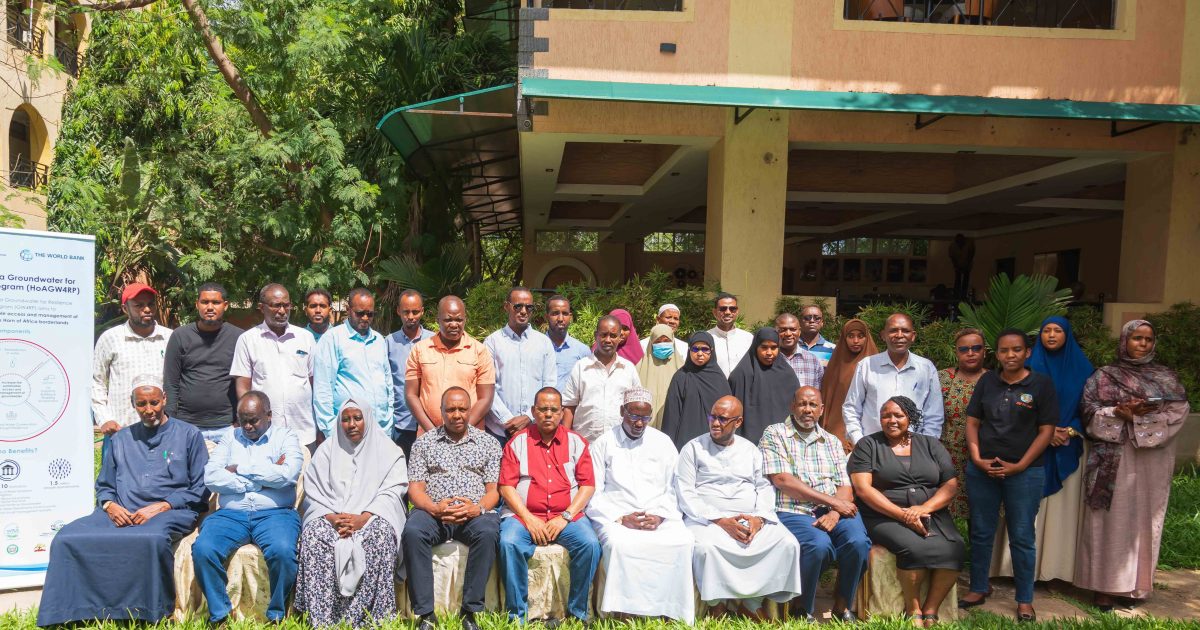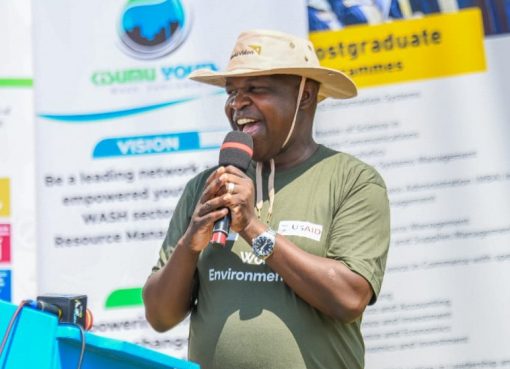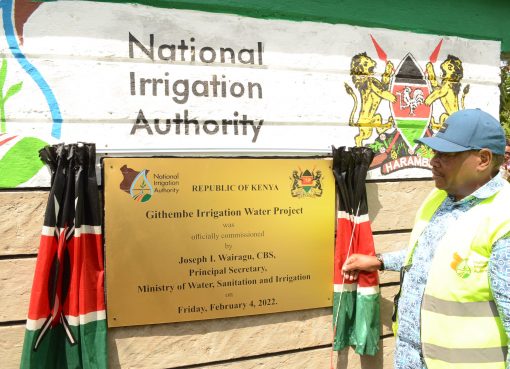Water stakeholders in the country have called for better water and aquifer conservation and all other water resources to ensure continued water availability for future generations.
The team was speaking in Garissa during a validation workshop on Thursday aimed at prioritizing Sub-Catchment Areas (SCAs) for the implementation of Managed Aquifer Recharge (MAR) infrastructure, conservation, and livelihood activities in five counties.
The five counties where the Horn of Africa for Groundwater Resilience project initiative (HoAGW4RO) will be implemented are Garissa, Wajir, Mandera, Marsabit, and Turkana.
Around 1.5 million rural residents from the mentioned counties will benefit from the WRA project development objectives aligned with the United Nations Goal 6, seeking to achieve universal access to safe drinking water by 2030.
Water Resources Authority board chairperson Donald Murgor emphasized the need to conserve water to safeguard the future of this country as well as improve the catchment areas in rural parts of the country.
Murgor said that access to water is key to everything, including industrialization and production.
He warned that due to climate change, if the water resources and the groundwater aquifers are not well recharged, water may be extinct shortly creating a big crisis.
“For our future generations we must start now to ensure that we conserve our catchment areas to combat the severe climate change,” said Murgor.
“We came to sensitize our people and we want to bring everybody on board, our youth, women, and people living with disabilities, we want to move together in one direction as water is an important resource for the development of our country,” Added Murgor.
WRA CEO Mohamed Shuriye said that the project aims to increase sustainable access and management of groundwater in the Horn of Africa borderlands stretching through Djibouti, Ethiopia, Kenya, Somalia, and Sudan.
Shuriye regretted that the country is currently grappling with water scarcity with only 443 cubic metres per capita of annual renewable freshwater supplies.
“Currently, 83 percent of our land is classified as arid or semi-arid lands (ASALs) where poverty levels highest are also high, particularly in the north and northeast parts of the country,” Shuriye said.
“These are areas where groundwater is not just a resource but a critical lifeline, playing an increasing role in our country’s drought resilience,” he added.
The CEO revealed that the project will also include the sinking of at least 60 exploratory boreholes, which if productive will be equipped for water supply.
“WRA has also been at the forefront of drilling and equipping dedicated boreholes in strategic aquifers. Through comprehensive monitoring, assessment, and mapping of groundwater resources and development, we aim to provide water for domestic use to millions of citizens,” he said.
Shuriye said that there will be another borehole in the Indian Ocean, which once successfully studied and approved will bring an end to water shortages in the coastal region which has not had a fresh supply of water.
Garissa CEC for water and environment, Ahmed Ibrahim cited the importance of evaluating how the underground water behaves and the monitoring of the Aquifer Recharge to help in planning to conserve water.
By Erick Kyalo




